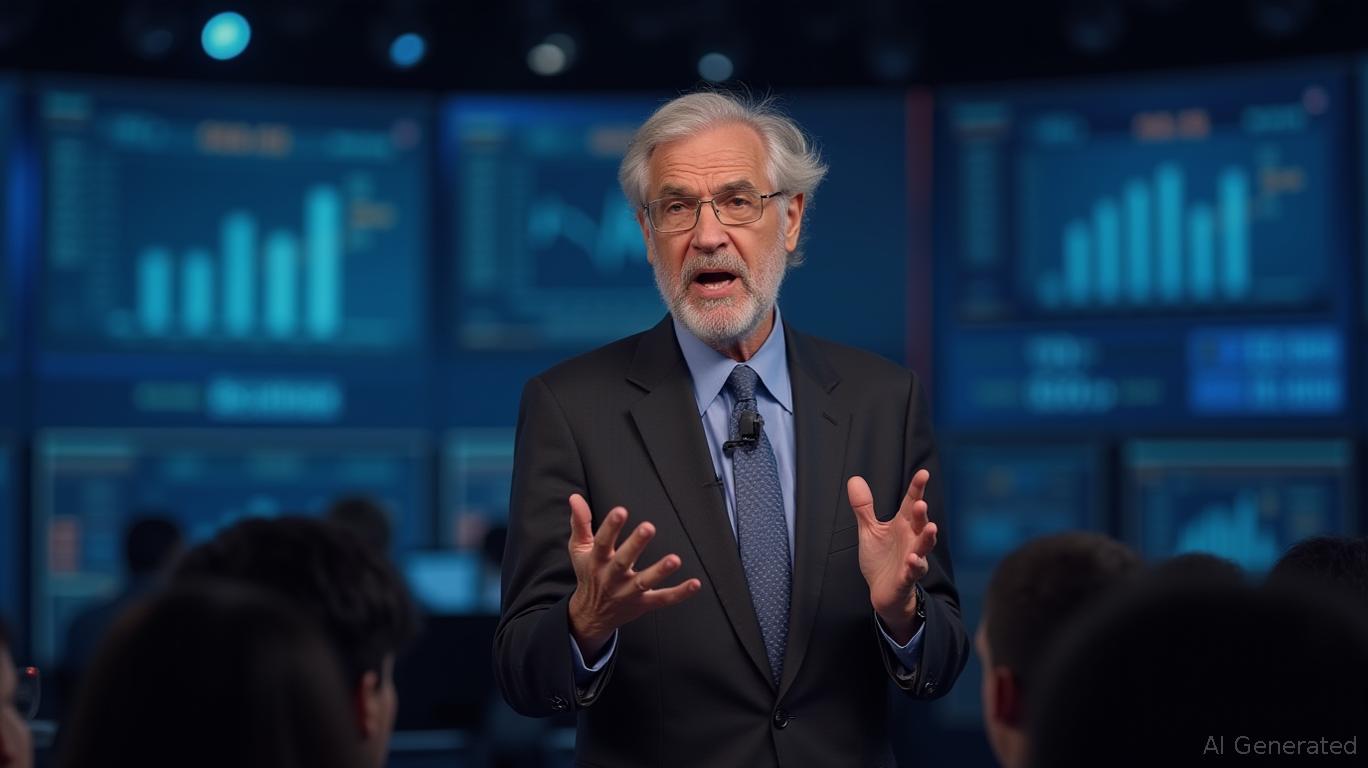Solana News Update: Alpenglow Enhancement Aims to Address Centralization Concerns by Reducing Validator Expenses
- Solana's Alpenglow upgrade aims to slash validator costs by reducing voting fees, targeting decentralization and lower entry barriers for node operators. - Marinade Labs’ CEO emphasized addressing centralization risks through affordable validator participation, prioritizing quantity over quality in node diversity. - Solmate Infrastructure plans Middle East validator deployment and aggressive M&A expansion, leveraging discounted SOL treasury assets for growth. - Market demand for Solana exposure grows as
The
Repetny pointed out that the upgrade is intended to tackle key issues in Solana’s staking ecosystem. He mentioned that the number of Solana validators has been inconsistent, recently dipping below 1,000 active nodes after previously reaching 2,000. Centralization remains a concern, with a small group of validators holding significant power. “We’d prefer to see hundreds of less powerful validators rather than thousands with people just running minimal setups,” Repetny said, stressing the importance of a stronger and more varied validator community, as covered by
The Alpenglow upgrade also seeks to boost network efficiency by increasing bandwidth and cutting down on latency. These improvements could help alleviate block congestion and make transaction processing more efficient, benefiting validator rewards. Additionally, lower latency could help prevent harmful maximum extractable value (MEV) practices that take advantage of transaction sequencing. “With less time to interfere with transactions, it’s a win for users,” Repetny commented, according to CoinDesk.

At the same time, Solmate Infrastructure, which manages Solana-based digital assets, is ramping up its infrastructure goals. The company has announced it will launch its first “high-performance Solana validator” in the Middle East, located in a UAE data center. Solmate has already put together the necessary hardware and is currently testing setups using SOL tokens acquired at a 15% discount during a $50 million purchase, as reported by
Market trends further illustrate Solana’s increasing popularity among institutional investors. The REX-Osprey Staking Solana ETF (SSK) has attracted significant capital, with assets under management now exceeding $400 million. This strong inflow, even amid a wider crypto downturn, reflects high demand for alternative coins. Although SSK’s 0.75% expense ratio is higher than what future Solana ETFs may offer, its model of distributing staking rewards continues to appeal to investors, according to
Solana’s network is also growing in areas beyond staking. The same report highlighted that the supply of stablecoins on Solana increased by 14% over the past month to $15.6 billion, and decentralized exchange volume reached $140 billion—second only to Ethereum’s $148 billion. These figures underscore Solana’s strong position in the broader blockchain sector.
Disclaimer: The content of this article solely reflects the author's opinion and does not represent the platform in any capacity. This article is not intended to serve as a reference for making investment decisions.
You may also like
Dogecoin News Update: Layer Brett's DeFi Advantage Draws Investors While Dogecoin Faces Setback
- REX-Osprey DOGE ETF, the first U.S. spot ETF for Dogecoin (DOGEUSD), launched on September 18, 2025, attracting institutional investors. - Dogecoin faces $0.20–$0.21 resistance after a 16% monthly decline, pushing investors toward Layer Brett (LBRETT) as an alternative. - Layer Brett, an Ethereum-based meme-DeFi hybrid, offers staking rewards, low fees, and 600% annualized returns, drawing crypto enthusiasts. - With $4.4M in funding and 10B tokens, Layer Brett combines utility and community incentives, p

Krugman Cautions That AI-Fueled Expansion May Widen Inequality and Deepen Economic Disparities
- Nobel laureate Paul Krugman warns the U.S. economy faces "abnormal" challenges, including AI-driven inequality, stagnant employment, and deepening polarization. - He highlights three key issues: sectoral divides from AI growth, an "employment freeze" with limited job access, and K-shaped growth favoring high-income groups. - Krugman criticizes delayed data releases and urges policy reforms to address systemic imbalances, as global trade tensions and Trump-era tariffs complicate economic stability. - His

BNB News Update: As BNB Levels Out and AVAX Declines, Crypto Investors Turn Their Attention to MoonBull
- BNB stabilizes above $1,100 amid Kyrgyzstan's BNB-backed stablecoin/CBDC partnership with Binance's CZ, while MoonBull ($MOBU) emerges as a high-ROI altcoin focus. - MoonBull's presale model offers 9,256% projected ROI through 23 price stages, 95% APY staking, and deflationary mechanics (liquidity, reflections, burns) to drive scarcity. - T. Rowe Price's $1.51T asset manager's crypto ETF filing signals institutional adoption, contrasting with AVAX's 14.85% monthly decline and bearish indicators. - $MOBU'

Bitcoin News Update: Bitcoin's Reputation as 'Digital Gold' Sparks Shift from Ethereum ETFs
- Ethereum ETFs saw $18.77M outflows in late October as investors shifted to Bitcoin, deepening crypto market divergence. - Bitcoin ETFs gained $73.63M in inflows via BlackRock's IBIT, maintaining $146.27B in net assets vs. Ethereum's $25.81B. - Bitcoin's price stabilized at $108,630 while Ethereum fell 0.89% to $3,832, reflecting institutional preference for Bitcoin's stability. - Fidelity's FBTC and Bitwise's BITB attracted $75.33M in October inflows, reinforcing Bitcoin's ETF leadership over Ethereum.
